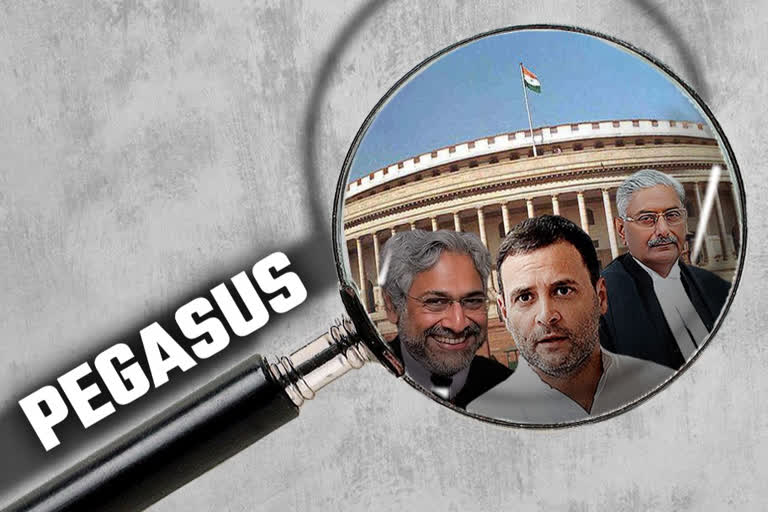Hyderabad: It is the manipulation of information that gives one an advantage over its opponent in using tactical intelligence against the enemy. Gathering information and using it against the competitors for making them take steps inimical to their interests is one of the aims of information manipulation. The intelligence-gathering was a herculean task earlier to do things manually which is now technology-driven and easy be it eavesdropping by phone tapping or putting gadgets of communication on the surveillance to listen to the conversations or snooping etc. The spying was primarily an act of national interest to ensure there are no compromises and threats to national security. That is how hacking became ethical and got acceptability and admissibility across the world.
For achieving the primary goal in ensuring there are no threats to national security the potential targets of snooping and hacking ideally were to be the suspects who were seen as possible threats to peace and harmony. Ironically, the story of spyware Pegasus goes the other way around. It is assumed that spying, snooping, hacking are no more an act of national interest. Instead of targeting the suspects now the lawmakers, members of the legal fraternity, journalists, and other sections of the society are put on surveillance. The government resources which are invested in buying various types of equipment for intelligence gathering relevant to national security are incurred on listening to the conversations of people who are in no way a threat to the nation. It is assumed that spying, snooping are now carried out to make maximum political gains particularly in the context of electioneering.
The issue of Pegasus spyware has reportedly been used against Indian politicians and other VIPs at a time when most of the parties — both ruling and opposition — are preparing for upcoming assembly polls in many states including Uttar Pradesh, which is the largest state of India. Listening to the phone conversations for political gains is, perhaps, not a new phenomenon in India but there is enough evidence which substantiates that eavesdropping happened earlier mostly for power gains. Only the formats seem to have changed.
To topple Omar Abdullah’s government when he was the Chief Minister of the erstwhile State of Jammu and Kashmir many phones were being tapped by the Technical Service Division of the Indian Army headed by then Army Chief General V K Singh.
TSD was a secret military group constituted on the instructions of the Directorate General of Military Intelligence (DGMI) in 2010. The unit was mandated to operate beyond the borders which otherwise is the responsibility of RAW (Research and Analysis Wing). Gen Singh, who was boss of the unit, later joined the BJP. Before things became uglier for him the entire unit was disbanded after he retired from the services. In fact, no traces were left behind even the structures and equipment were dismantled and reportedly buried in a river somewhere in Kashmir. There was a huge controversy over the making and functioning of the TSD and a high-level inquiry was conducted.
Now the same thing is happening in and around the country in a new style and the format is also different. It is no more just listening to the conversation stealthily, but taking over the control remotely of the mobile phone a target is using. It is all happening at a time when the Indian political parties are busy strategizing the forthcoming state elections in UP, Gujarat, and elsewhere. The reports of snooping through spyware software meant to counter-terrorism are used against the lawmakers and members of the election commission is intriguing. Government is nonchalant even when the parliament uproar by the opposition continues because they demand a debate over the Pegasus case. The Supreme Court has also reacted to the malware used for eavesdropping on VIPs and reputed citizens of India.
Spying on VIPs makes no sense when it is seen through the lens of national security. One can only zero in the elections that are relevant to putting VIPs on the radar. Since the elections are crucial for the ruling party as the row over farm bills, petrol hike, Covid management seems to have dented the present dispensation the most and may make an impact on their performance in forthcoming polls, therefore to overcome it the use of technology may help them strategise to better their performance.
The reports suggest that snooping was the only means to know the plans of the other side which can be countered accordingly. All this, unfortunately, is happening in the name of national security. The government is yet to respond whether the spyware was purchased by the government or not, but reports suggest that there are two servers in India to tap the phones within the Indian spaces. Though it is clear that the software is sold to governments only and is made aimed at countering terror activities.
If the story of using the Pegasus against the lawmakers in India is to be believed then the whole purpose of the NSO which sells the software is tweaked and digressed.



